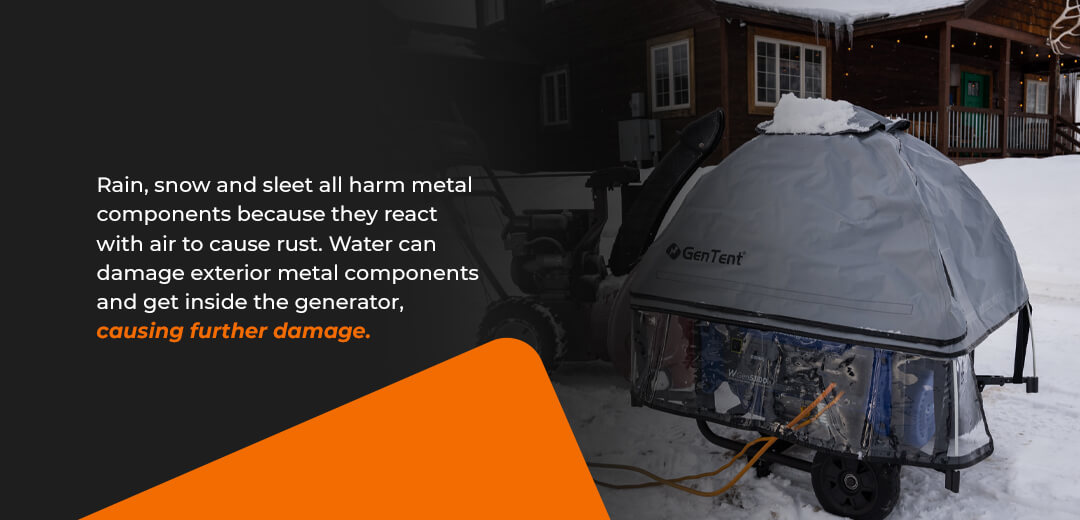Protect Your Generator From Rusting
Posted by Cassandra P. on Jun 26th 2023
How Do I Stop My Generator From Rusting?
Your generator provides backup power during severe weather events that remove power, like thunderstorms, snowstorms and hurricanes. Unfortunately, many of these events bring high moisture levels, which can cause rusting and damage to your generator. Use this guide to learn about the effects of moisture on metal parts and protect against water damage.

Rain, snow and sleet all harm metal components because they can cause rust. Water can damage exterior metal components and get inside the generator, causing further damage. Saltwater, heat and wind can cause rust to spread faster, causing even more generator corrosion.
You don't want rust on your generator's exterior, and it gets even worse when rust spreads inside. Water might enter the exhaust and radiators, causing damage so your unit doesn't cool down properly. Eventually, the damage could lead to your equipment breaking down, leaving you without backup power.
Beyond causing rust, water might interact with electrical components, creating a dangerous combination that could lead to a fire.
How to Prevent Rusting and Damage
A generator can't get wet. To prevent rust damage, you must keep your generator away from water, but this isn't always easy. You can't store the machine inside because toxic fumes could enter living spaces, endangering your health. Often severe weather is the cause for power outages, meaning your generator frequently runs during storms.
Here are a few strategies for protecting the exterior and gas tank from rust.
The Exterior
The external metal components are the most exposed to water and are prone to rust. Protecting your generator while running and in storage will create the longest life span for the machine. Here are a few ways to prevent damage:
- Use a generator tent: A running generator cover protects your generator from rain, wind and snow while providing proper ventilation.
- Apply polymer epoxy: This coating will keep moisture from the generator structure and all exposed parts. Apply it to the frame and other exterior metal components before using the generator.
- Store it properly: A cool, dry place protects your generator while you're not using it. You should also cover it to keep out water and dust.
The Fuel Tank
The fuel tank is prone to rusting when exposed to moisture. When it rusts, it may leak or prevent your equipment from functioning well. Here are tips to prevent rust in your tank:
- High-quality fuel: Water or additives in fuel might cause damage resulting in a breakdown. Once broken down, the machine will rust and clog.
- Safety checks: Clogged, worn or leaking valves can cause leaking. When you check and repair these problems, you'll avoid future damage.
- Regular cleaning: Drain gasoline and clean the tank's interior and exterior with detergent and a cloth or sponge. This process will prevent rusting.
- Full tank: Keep your generator's tank full to prevent air from entering the chamber. When air can't get in, you will reduce internal corrosion.
- Tank paint: Use corrosion-resistant paint on your tank's exterior to coat the metal and stop water from getting in. The coating will cause moisture to bead off rather than collect.
Additional Maintenance Tips
You want your generator to provide consistent power for a long time. Beyond protecting exposed metal components from rust, you can conduct regular maintenance that includes these steps:
- Replace oil and filters.
- Change your spark plugs and air filters.
- Pay attention to continuous versus starting watt capacity.
- Run the machine every few months.
Use a GenTent Canopy to Protect Your Generator
A durable covering is one of the best ways to protect your running generator from rust. GenTent's NFPA-rated generator tents are made with flame retardant materials and are engineered to withstand rain, snow and strong winds, keeping your machine safe and dry. Browse our selection to find the right fit for your generator.
